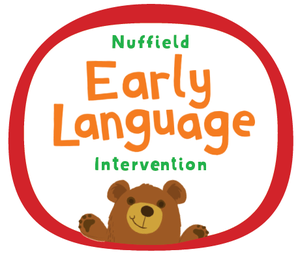Speaking, reading and learning: a new oral language intervention programme for young children
Research
shows that children who develop good oral language skills at a young age learn
to read more easily and have better educational outcomes overall. Now a new
language intervention programme targeted at young children with relatively poor
spoken language skills aims to help them improve their literacy, their confidence
and their attainment.
The Nuffield Early Language Intervention programme has been developed by a team led by Professor Maggie Snowling, President of St John’s, and Charles Hulme, Professor of Psychology and Education at the University of Oxford, together with Claudine Bowyer-Crane, Senior Lecturer, Psychology in Education, University of York and Silke Fricke, Senior Lecturer, Human Communication Sciences, University of Sheffield. It has been developed with funding from the Nuffield Foundation, and all materials included in the programme are being published by Oxford University Press.
 The
programme is delivered over 20 weeks to pupils in
the first year of primary school, in groups of two to four children, three times a week, alongside
some individual sessions. Trained Teaching Assistants run the programme, with
sessions focusing on listening, narrative and vocabulary skills. The programme also includes
professional development for the Teaching Assistants and non-specialist
teachers, delivered by Elklan, a training agency specialising in supporting speech and language
development. Teachers are given comprehensive resources to assist with planning,
teaching and assessment, including teaching handbooks, picture cards, a puppet
and assessment support. Additionally, there will be webinars and email support
with specialist tutors throughout the intervention.
The
programme is delivered over 20 weeks to pupils in
the first year of primary school, in groups of two to four children, three times a week, alongside
some individual sessions. Trained Teaching Assistants run the programme, with
sessions focusing on listening, narrative and vocabulary skills. The programme also includes
professional development for the Teaching Assistants and non-specialist
teachers, delivered by Elklan, a training agency specialising in supporting speech and language
development. Teachers are given comprehensive resources to assist with planning,
teaching and assessment, including teaching handbooks, picture cards, a puppet
and assessment support. Additionally, there will be webinars and email support
with specialist tutors throughout the intervention.
In 2016, the Education Endowment Foundation (EEF) published an evaluation study of the Nuffield Early Language Intervention programme. The statistically significant results from 34 schools demonstrated that the programme increased the attainment of levels of 4- to 5- year-olds in vocabulary, grammar and listening skills and improved language and children’s confidence. The EEF designated the intervention as a ‘promising project’ and a further, larger-scale trial involving 200 classrooms is currently underway, independently evaluated by a team from Queen’s University, Belfast.
With publication of the programme in January 2018, any school will be able to adopt this high-quality intervention for its Reception year pupils.
Professor Maggie Snowling commented, ‘Language is the medium of educational instruction and the foundation of literacy. This programme can help strengthen the foundation of education for children who may otherwise be left behind.’
Josh Hillman, Director of Education at the Nuffield Foundation said, ‘The Nuffield Foundation has supported this programme from its initial development and early trialling, through to the EEF-funded randomised controlled trials that showed it improves the vocabulary, grammar and listening skills of children by as much as four months. We are delighted that our new partnership with OUP will enable potentially all schools to benefit from the Nuffield Early Language Intervention.’
Andrea Quincey, Head of English, UK Education at OUP, said, ‘Oxford University Press is driven by a strong sense of social purpose – helping teachers and schools to improve children’s educational life chances. We believe that the Nuffield Early Language Intervention programme is a powerful combination of resources, proven pedagogies and professional development that will bring about a positive impact in the classroom and beyond.’
The Nuffield Foundation
Education Endowment Foundation first trial and second trial.
Oxford University Press
Watch a video about the Intervention: